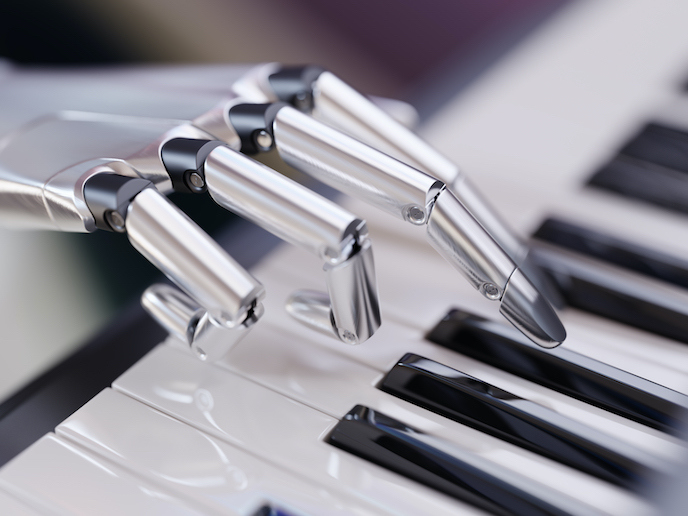AI composers create music for video games
Artificial intelligence (AI) advances are often heralded as making life easier, safer and more efficient. As such, AI promises to transform multiple aspects of daily life, from how we travel to how we work and how we are entertained. The EU-funded AIVA project has developed an AI composition tool, a ‘music engine’ known as AIVA, that can be integrated into existing video games, providing bespoke music that complements play action. AIVA is the first ‘virtual artist’ to be recognised by SACEM(opens in new window) – the French professional association representing the royalties and rights of original music creators. It was also the first AI composer to be commissioned for a piece for the National Day celebrations in Luxembourg(opens in new window) and an anthem for the city of Dubai(opens in new window), both performed in 2017. “A favourite moment was when we recorded a piece composed by AIVA at the legendary Newman Scoring Stage in Los Angeles(opens in new window),” says Pierre Barreau, AIVA project coordinator and CEO of AIVA(opens in new window). EU funding allowed the team to carry out a feasibility study, interviewing game developers, collecting and analysing market data and tracking usage analytics on their existing product, in preparation for further development.
The acoustic algorithm
Scoring soundtracks for entertainment content is still often based on methods of production that are over 100 years old, going back to the early days of film and radio. Composers, arrangers, orchestrators, musicians, studio engineers, music supervisors and publishers are hired to create original soundtracks. This can result in a soundtrack taking up to 6 months and costing up to EUR 500 000. While the quality is usually high, such professionally scored soundtracks are not fit for purpose for fast-moving media, such as the games market. AIVA built an AI system that uses machine learning(opens in new window) to train itself by reading over 30 000 classical music scores from the world’s greatest composers. The AI’s algorithms look for patterns in the scores, to infer a set of mathematical rules that are adopted to create original compositions. There are a number of advantages. Firstly, it is fast and scalable. As generating one piece of music can take a few seconds, users can quickly create lots of tracks. It is also cheap, opening up the field to independent game creators with small to non-existent budgets. AIVA offers services at different price points, tailored to available budgets. “Our virtual composer is capable of composing music that is full of emotion, and as the algorithm reacts to the action unfolding during the game, it is also personalised,” explains Barreau. The beta version of AIVA(opens in new window) allows users who have logged in, to access their online accounts to create original music as digital scores, stored as MIDI files. Users can edit their pieces using AIVA’s Digital Audio Workstation or Notation Program. Depending on their package level, the intellectual property for compositions is owned either by the user or by AIVA.
Expanding creativity
“Feedback has been very positive. We continue to improve the product based on customer demand and will offer additional ways creators can integrate AIVA into their creations,” adds Barreau. “We believe that advancing algorithms used for artistic purposes has the power to stimulate people to be more creative.” Currently, development is focused on increasing the quality and diversity of the compositions generated by AIVA. This includes a broadened repertoire of subgenres, such as synthwave and hip-hop, alongside music more tailored to users’ tastes based on previous preferences.







